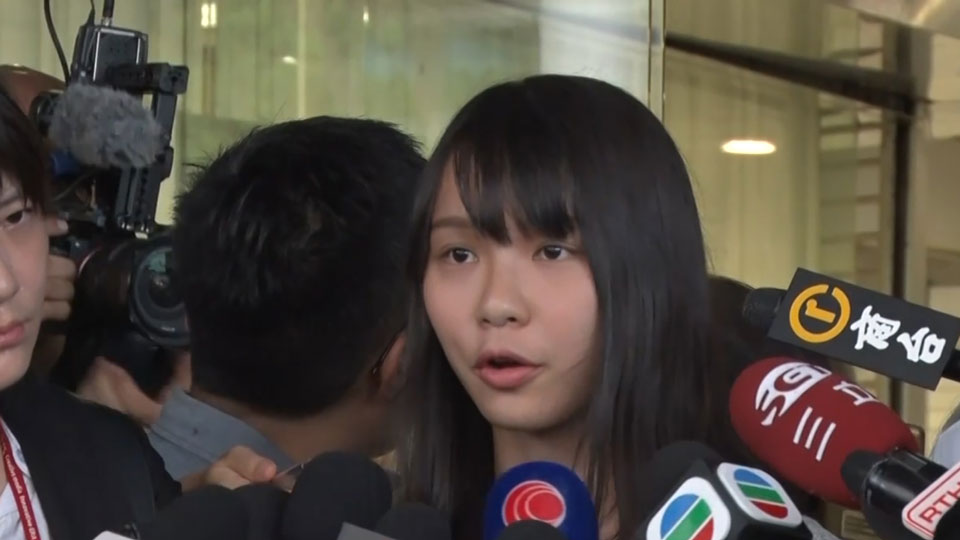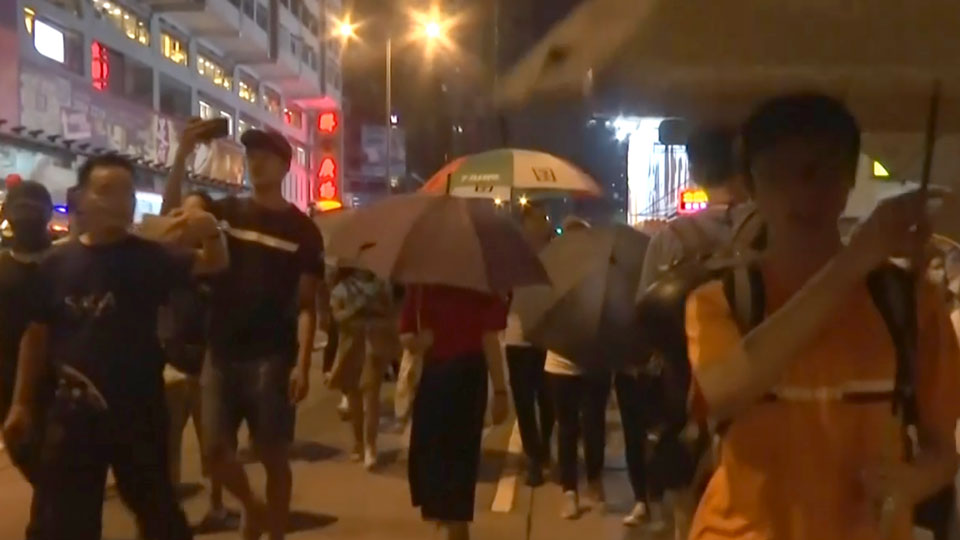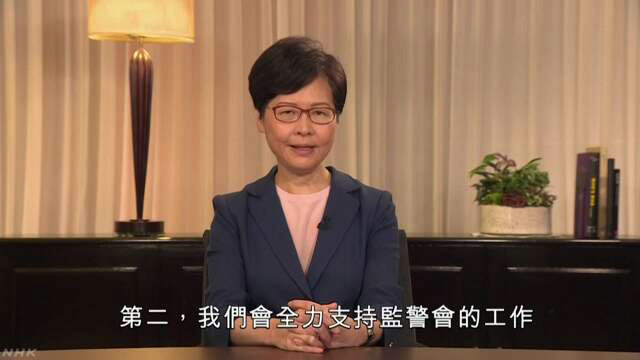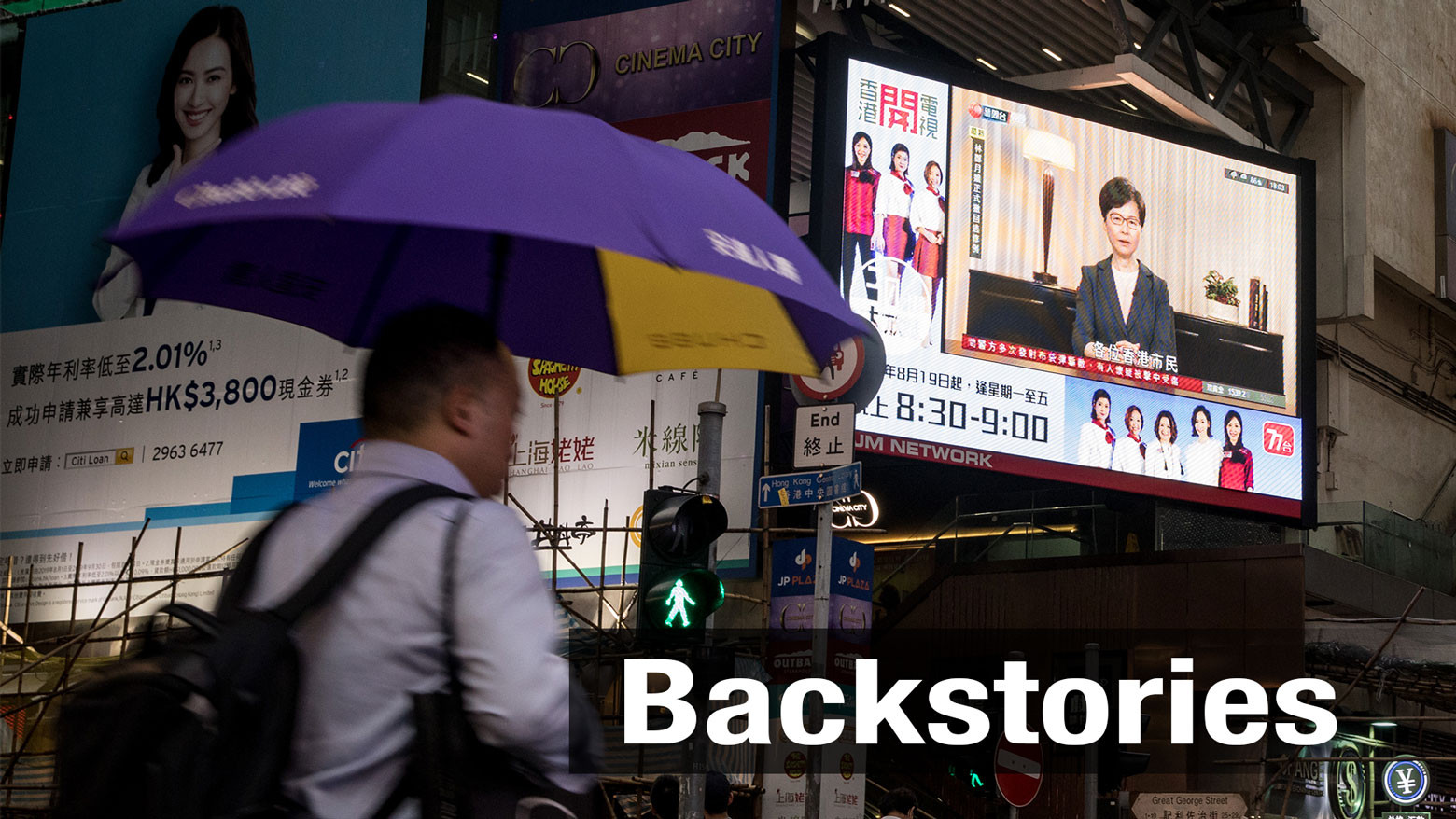How protesters are reacting
Even since Lam's Wednesday announcement, there have been stand-offs between police and protesters.
"We will keep on fighting until our other four demands are met. We will stand against political suppression," said pro-democracy activist Agnes Chow.

Protesters have five demands, and while the withdrawal of the bill was one of them, it wasn't the most important.
The main demand now is a call for an independent inquiry into police conduct.
On Wednesday, Lam said she would bolster the Hong Kong police's independent watchdog with new members, including foreigners.
But Lam can't afford to anger the police, so she's trying to please both sides, and making neither happy.
Wednesday's announcement may even convince some protesters to step up their demonstrations, reasoning that they got Lam to back down on one point, so they can get her to cave on the others too.

The path to killing the bill
Lam declared the bill "dead" in early July, but it took her another two months to withdraw it completely. One reason for that delay may have been pressure from China.
But the tensions between demonstrators and the Hong Kong government escalated to the point that police were firing shots at protesters, China's armed forces were gathering near the border, and over 1,100 people were arrested.
It was a pressure cooker, and sooner or later it was going to explode.
There are fears that someone would be killed, and that would be a real tipping point.
So Lam had to release some of that pressure.
Withdrawing the bill also gives both the Hong Kong and Chinese governments room to breathe, especially with a big anniversary coming up for China. Beijing doesn't want anything to distract from celebrating 70 years since the founding of the People's Republic of China.
Carrie Lam's next steps

In her address on Wednesday, Lam called on the people of Hong Kong to "replace conflicts with conversations." Her next step will be talking to people. She mentioned community outreach and initiating a study on the causes of the city's social injustices.
But while Lam may want to talk, it's unclear whether the people of Hong Kong want to hold that dialogue with her. There are growing calls for her to step down, and many protesters no longer see her as someone they can negotiate with.
How is China responding to the withdrawal?
The Chinese Communist Party used one of its social media accounts to praise Lam for her sincere efforts to resolve the problem, and said Hong Kong's future depends on whether the people can now stop the violence.
And there's likely to be even more pressure behind the scenes. Lam will be expected to push back hard against any actions that could threaten China's "one-country, two-systems" principle.
That behavior could include actions we've already seen from protesters, like burning the Chinese flag or attacking Beijing's Liaison Office in Hong Kong.
One of the demands of the protesters is the power to elect their leader, who is currently appointed by Beijing. But that is something the Chinese government will not accept.
For now, Beijing will be closely monitoring how the next few days and weeks play out in Hong Kong.
If the demonstrations continue, we may see China exerting its influence more overtly.


